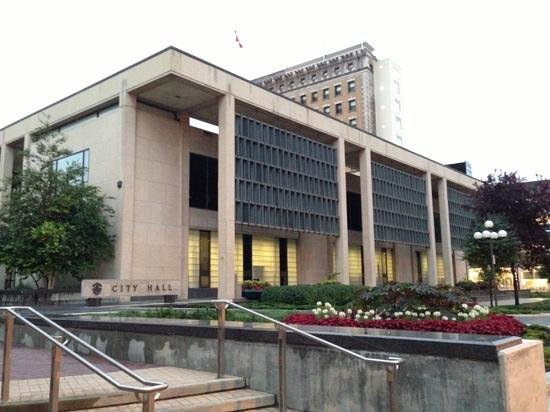
Op-ed: Competition shows democracy is healthy
The following is an op-ed written by Royce Koop, an associate professor and head of the political studies department. It was originally published in the Winnipeg Free Press on Oct. 19, 2018.
Once the dust had settled on the lists of registered candidates running for Winnipeg city council, we discovered there would be one acclamation: incumbent Coun. Janice Lukes in the new ward of Waverley West. The news must have irked Mayor Brian Bowman, since Lukes has become one of the mayor’s most ardent and vocal council critics. Bowman is now campaigning for re-election against Jenny Motkaluk’s scrappy challenge, while Lukes coasts unopposed to a second term on Winnipeg council.
Three other council incumbents — North Kildonan’s Jeff Browaty, St. Boniface’s Matt Allard and St. Vital’s Brian Mayes — all appeared to be cruising toward acclamation themselves. But they were foiled in this respect when challengers threw their hats into the ring.
Still, Browaty, Allard and Mayes must be considered the odds-on favourites to win their wards. Incumbency is a powerful benefit in most Canadian local elections.
Incumbent councillors begin their races with name recognition. They have had four years to position themselves front-and-centre before their constituents, either via the media or through their own local efforts to reach out to residents of their wards and represent those residents’ interests on council. In contrast, challengers may have to spend the entire campaign period trying to build the name recognition incumbents take for granted. Many challengers simply don’t make it out of the gate.
Further, most municipal elections in Canada are non-partisan in nature. Political parties are good at organizing policies and conflict and they give voters a shortcut to follow when they vote. In doing so, parties can help to circumvent the incumbency advantage. They may also provide funding and volunteers to challengers to help them take on incumbents. Without parties, challengers are always playing catch-up.
As a result, incumbents might scare off challengers. In the current council races, we can see how a lack of an incumbent can drive interest in the position. In Fort Rouge-East Fort Garry, Jenny Gerbasi’s retirement has seen seven candidates line up to replace her. It’s the same story in Transcona, where the absence of an incumbent following Russ Wyatt’s decision not to seek re-election has led to no fewer than nine candidates in the race. Potential candidates understand that incumbency is a major strength in municipal politics and that they stand a better chance when running for an open seat.
Acclamations are an entirely different story. They may be a testament to the strength of the incumbent in the race. We know, for example, that in the “race before the race,” potential candidates are dissuaded by the presence of strong incumbents.
So, Lukes can pat herself on the back in thinking her decision to run in Waverley West likely scared off potential challengers.
Democracy health check
On the other hand, we should worry about acclamations. What could possibly explain why out of the roughly 40,000 residents of Waverley West, not a single person was willing to step forward to challenge the incumbent? A healthy democracy depends on vibrant competition between candidates in elections and acclamations deprive the voters of a choice. If we see many acclamations and uncompetitive races, it may reflect that potential candidates do not see the role as sufficiently important to be worth pursuing.
Further, acclamations have serious implications for accountability. Elections are opportunities for voters to hold incumbents accountable for the decisions they have made and the actions they have taken over the course of their terms in office. Incumbents campaign on the basis of what they have achieved, while their opponents try to cast doubt on that record. If incumbents have failed to represent the interests and concerns of their constituents, they should expect to be held accountable when they stand for re-election. But when there is no race, there is no opportunity for voters to hold the incumbent accountable.
How often are candidates for municipal politics in Canada acclaimed? With respect to mayoral races: in Canada’s 100 largest cities between 2004 and 2014, only 13 mayoral elections (four per cent) were decided by acclamation. That is not a particularly high percentage, but anecdotal evidence suggests the number would likely be higher in less populous municipalities where the talent pool from which to draw candidates is limited.
In terms of competitiveness, school-trustee elections in Winnipeg’s several school divisions have produced mixed results. There are several acclamations, but also races in which the number of candidates is high and competition is fierce. In Ward 3 of the Pembina Trails Division, for example, nine candidates are running for three trustee positions. One only need to drive through these neighbourhoods to see the number of campaign signs erected by trustee candidates to realize that local democracy is alive and well.






